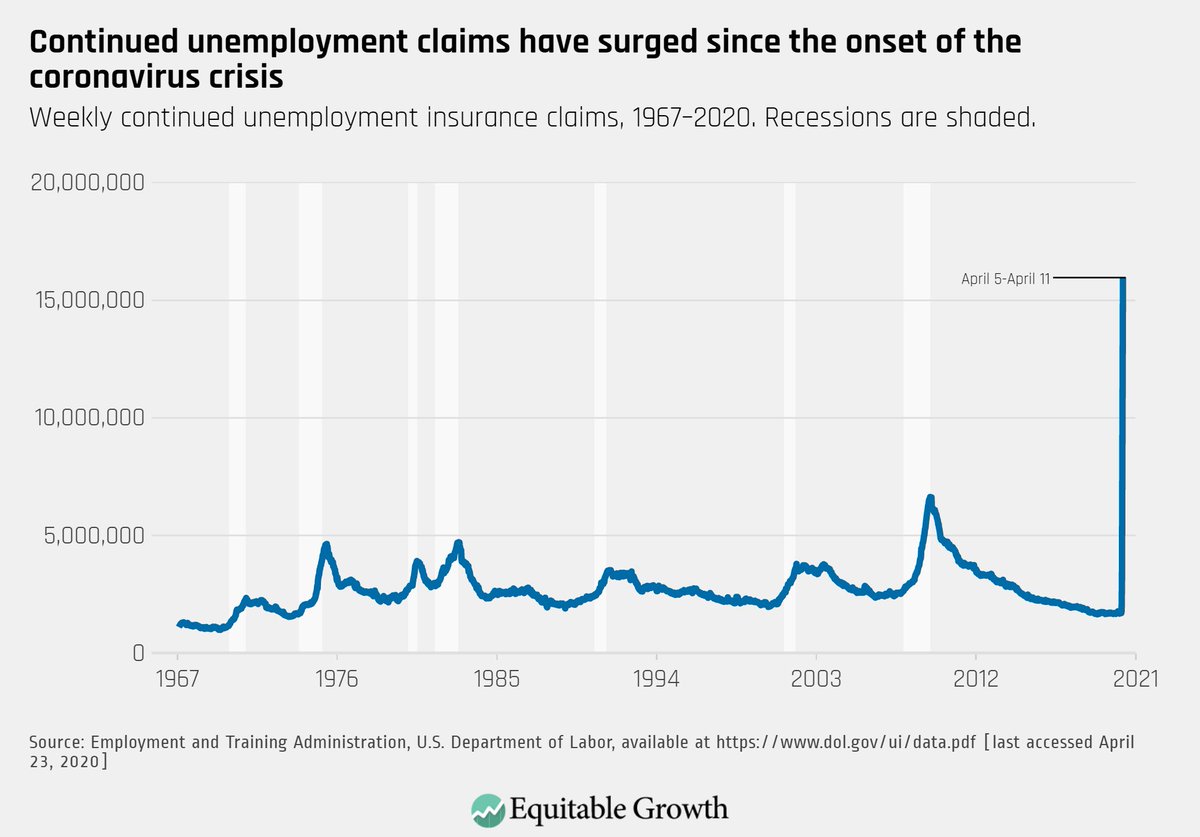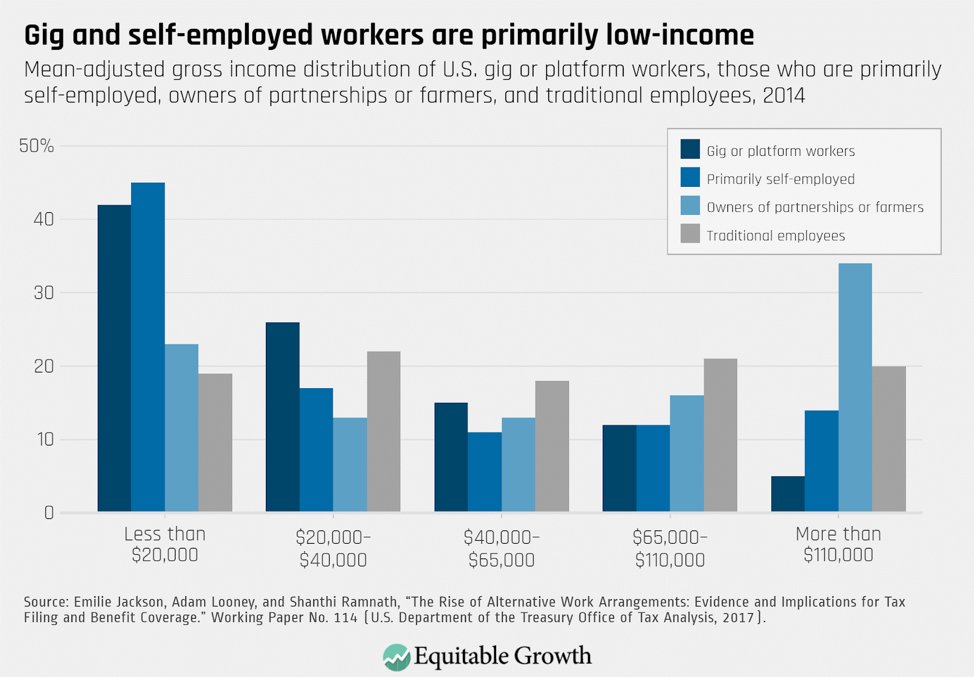The @USDOL just released its Weekly Unemployment Insurance (UI) Claims report, showing that 4.4 workers filed initial claims the week ending on April 18 as #coronavirus related layoffs continue (1/9)
Continued claims, or the number of new applications that have been processed, went from 12 million the week ending in April 4 to 16 million the week ending in April 11 (2/9)
While newly eligible for UI under the #CARESAct, many states are not yet accepting applications from independent contractors and #gigeconomy workers. These delays are affecting already particularly vulnerable workers (3/9) https://equitablegrowth.org/the-coronavirus-recession-exposes-how-u-s-labor-laws-fail-gig-workers-and-independent-contractors/">https://equitablegrowth.org/the-coron...
Many independent contractors are providing essential face-to-face services, meaning that they are at particular risk of getting sick. Others were among the first to lose income, and are out of work without access to basic protections like sick leave or health insurance (4/9)
Because gig and self-employed workers are disproportionately low-income, they are also among the least likely to have the financial cushion to weather this recession and would benefit from pandemic unemployment assistance (5/9)
But many workers are fighting for better working conditions. Like workers at McDonalds and Whole Foods, those at the grocery delivery platform Instacart held a nationwide strike demanding protective gear, hazard pay, and a fair sick leave policy (6/9)
Independent contractors need the right to join a union so they can take collective action to raise their pay, benefits, and working conditions. As @LipstickEcon and @CoreyHusak write, legislation like the #PROAct would guarantee this right (7/9) https://equitablegrowth.org/factsheet-the-pro-act-addresses-income-inequality-by-boosting-the-organizing-power-of-u-s-workers/">https://equitablegrowth.org/factsheet...
It would also close major loopholes in U.S. labor law, making it harder to misclassify workers as contractors—a strategy that allows firms to outsource parts of their business and maintain control of workers without providing benefits ( @CoreyHusak) (8/9) https://equitablegrowth.org/how-u-s-companies-harm-workers-by-making-them-independent-contractors/">https://equitablegrowth.org/how-u-s-c...
And, as @HBoushey writes, platforms like Uber, Lyft, and Instacart, need to pay their fair share, and help fund the #unemployment system they are now benefiting from (9/9) https://morningconsult.com/opinions/gig-companies-got-a-bailout-now-its-time-for-them-to-pay-unemployment-insurance/">https://morningconsult.com/opinions/...

 Read on Twitter
Read on Twitter




